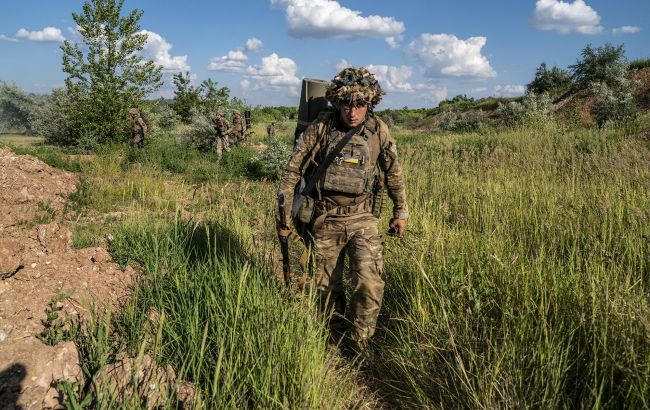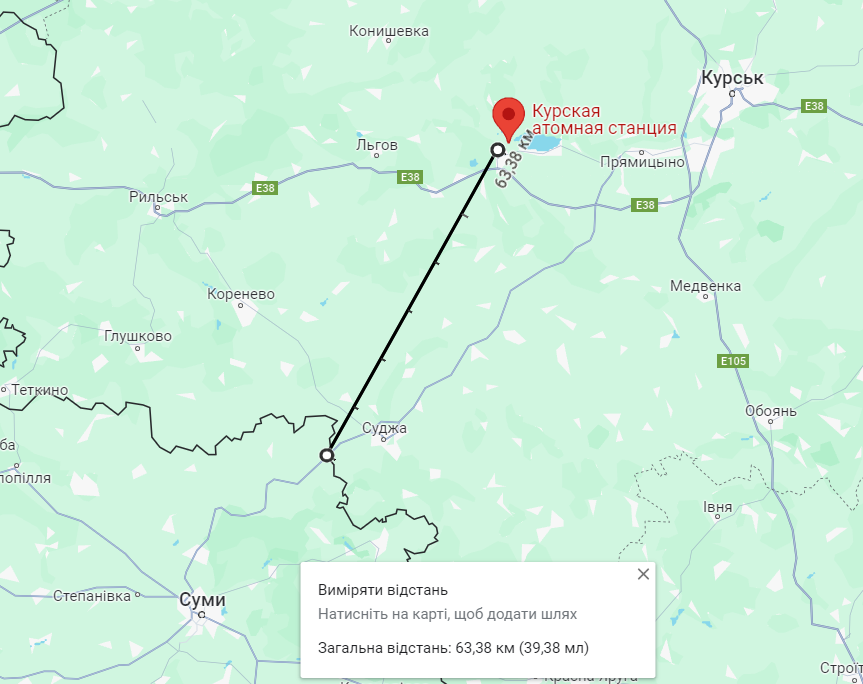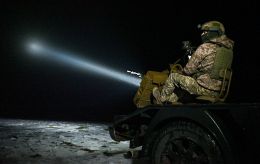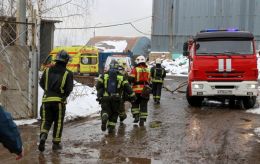What is purpose behind breach in Kursk region and why is General Staff silent?
 Illustrative photo: what is the purpose of the "breach of the border in the Kursk region (Getty Images)
Illustrative photo: what is the purpose of the "breach of the border in the Kursk region (Getty Images)
Fighting continues in the Kursk region for the second day after an unexpected "breach" of the border near the town of Sudzha. While the Russian military and political leadership claims that "everything is under control" and promises the Russians to "go to the border," the Ukrainian side has not made any official statements about the situation.
RBC-Ukraine's material explains the idea behind the operation in the Kursk region, why Sudzha was targeted, how it could end, and why the Ukrainian General Staff is silent.
Contents:
- How Russia allowed a border breach and what is the goal of the operation
- Why Sudzha was targeted
- Rumors around the Kursk Nuclear Power Plant
- How the operation may end
- Why the General Staff of the Ukrainian Armed Forces remains silent
How Russia allowed a border breach and what is the goal of the operation
On Tuesday, August 6, reports flooded Russian Telegram channels and media about a border breach between Ukraine and Russia towards the Kursk region. Russians claim that Ukrainian forces are advancing in the area of Sudzha, a town just 8 kilometers from the border.
Fighting in the Kursk region reportedly continues, with rumors suggesting that Ukrainian troops have advanced 25 kilometers into Russia. Meanwhile, Western media outlets are already calling these events one of the most significant penetrations into Russian territory since the start of the full-scale invasion.
According to military analyst Oleksandr Musiienko, this success was made possible by the element of surprise. In his view, the operation had been planned for a long time, and a statement by the head of the Defense Intelligence of Ukraine, Kyrylo Budanov, about threats from the north contributed to creating this surprise effect.
"This allowed Ukrainian forces to redeploy certain forces to the Sumy region in such a way that Russia would not suspect any offensive preparations. The Russian forces believed that after Budanov's statement, we would be on the defensive. They thought they were successfully tying down Ukrainian troops, facing no real threat," he explained to RBC-Ukraine.
Musiienko believes this special operation on Russian territory may have several objectives. The first is to conduct a counterattack where the Russians least expect it, inflicting losses on the enemy in both manpower and equipment.
"The next objective is to try to establish a foothold directly in the Kursk region and create a so-called 'sanitary zone,' similar to what Russia attempted to establish in the Kharkiv region. Ukrainian forces are demonstrating that they can do this as well," the analyst noted.
Another goal, according to Musiienko, could be to force Russia to redeploy forces to the Kursk region from other directions, such as Donetsk, Luhansk, or Kharkiv regions. In this way, Ukrainian forces impose their strategy and seize the initiative.
"There are also certain other motives and intentions that we will learn about later. But they exist," he added.
Why Sudzha was targeted
According to available information, the main direction of the border breach was the town of Sudzha. Russian sources have spread rumors that the town is either under Ukrainian control or surrounded, but there are no confirmations from either the Russian or Ukrainian sides.
As previously reported by RBC-Ukraine, several important objects for Russia are located in the Sudzha region, including a gas metering station that ensures the transit of Russian gas to Europe through Ukraine. There is also a power substation connected to the Kursk Nuclear Power Plant in the Belgorod region.
Moreover, a railway line runs near Sudzha, which supports the needs of the Russian grouping in Kharkiv, and a TV tower that broadcasts propaganda to the border areas of Ukraine. However, these are not the only factors that make Sudzha a significant target.
According to Musiienko, the Russian army used Sudzha as a base for conducting sabotage and reconnaissance operations in the Sumy region. Furthermore, at the end of April, a group was gathering here for an offensive on Sumy.
"An offensive group was being prepared in Sudzha with the purpose of attacking the Sumy region. Later, they were redeployed to the Kharkiv region due to significant problems faced by the Sever military group. But Sudzha continued to serve as a support base for forces making incursions into the Sumy region," the analyst explained.
As for the aforementioned gas metering station, Musiienko believes it could be used as a tool for pressure and influence on Russia.
Rumors around the Kursk Nuclear Power Plant
Since one of Russia's nuclear power plants is located in the Kursk region, theories and rumors have spread online and in the media that one of the objectives of the border breach could be to gain control of the plant. There were speculations that the Kursk Nuclear Power Plant, located in Kurchatov, more than 60 kilometers from the border, might be seized and exchanged for the Zaporizhzhia Nuclear Power Plant.
Additionally, Russian sources claim that the Kursk Nuclear Power Plant is poorly protected, and all the National Guard personnel have already fled. However, Musiienko considers such information to be nothing more than Russian disinformation, possibly aiming to lure Ukrainian forces into a trap.
"I think this is a provocation by Russia, a kind of attempt to lure Ukrainian defense forces into a trap. I don't think this (capturing the nuclear plant - ed.) is the goal of this operation," he told RBC-Ukraine.

How the operation may end
Musienko suggests that the operation, which began yesterday in the Kursk region, could last for some time. It is likely that Ukrainian forces will remain on Russian territory for a while.
"They are currently consolidating at certain positions, posing challenges to Russian security. I do not rule out that they will withdraw later. I don't think there is an intention to stay in the Kursk region permanently. But they will leave once specific objectives are achieved," the analyst explained.
Such pressure, Musiienko believes, could force Russia to take certain actions or abandon certain operations. It will all depend on when the ultimate goal of the operation is achieved, he emphasized, adding that everything is currently developing in Ukraine's favor.
Why the General Staff of the Ukrainian Armed Forces remains silent
Despite the active reaction from the Russian side to the events in the Kursk region, including a meeting held today by President Vladimir Putin, the Ukrainian military and political leadership have not commented on this operation at all.
The General Staff of the Ukrainian Armed Forces has neither confirmed nor denied reports of a breach by Ukrainian units towards Sudzha for two days. The daily briefings do not mention any fighting in the Kursk direction, only that the enemy has increased aviation activity near the Sumy region.
Musiienko suggests that there may be specific reasons for this, which Ukrainians may learn about later.
"Secondly, it's a communication issue. We understand that sometimes communication leaves much to be desired. Sometimes, of course, it is necessary to comment in this way (as it is now - ed.). But I think we will soon receive more information at the official level," the analyst concluded.
Sources: statements from Russian officials and sources, a Reuters report, and comments from military analyst and head of the Center for Military and Legal Studies Oleksandr Musiienko.
The events in the Kursk region have already received reactions from the United States and the European Union. The White House stated that it plans to contact Ukraine to obtain more information. Meanwhile, in Brussels, they supported Ukraine's right to self-defense, including strikes on the aggressor's territory.

